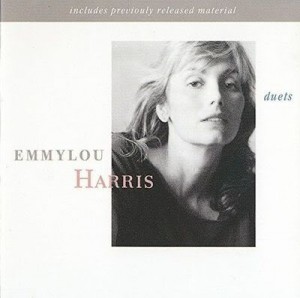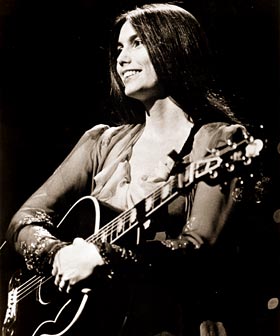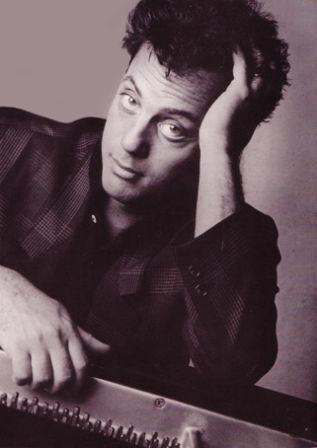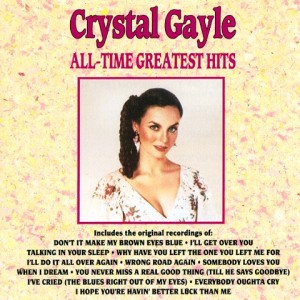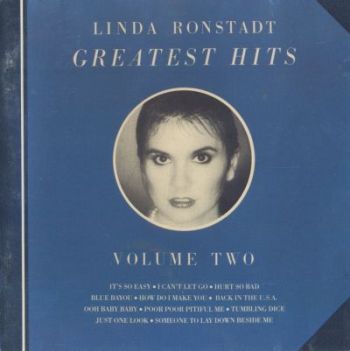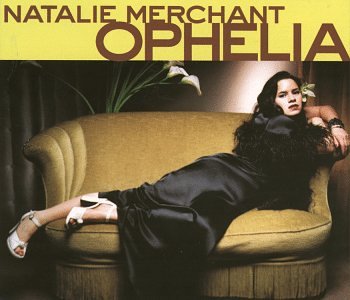
The CD Cover - Natalie As Demigodess
I consider Natalie Merchant’s “Ophelia” as the point when her solo career really commenced. She had released an album before (1995’s “Tigerlily”), but that album was more like the closing of a stage than the start of a new one. Conversely, “Ophelia” (released in 1998) is her first truly realized artistic statement, using every device that she wants to use, and letting her own voice and musical vision dominate every single minute of the album.
In actuality, “Ophelia” was a multimedia project – the CD was accompanied by a short video, and stills from the film constitute the artwork of the album. A concept is clearly discernible, although there are songs like “King Of May” that deviate from the overall study of the famed Ophelia, a female figure par excellence, and an obvious choice for Natalie, someone always concerned about the way women are perceived and how these perceptions can end up being lies which are always true.
That is the theme of the album’s eponymous track, and the first thing you listen to when you play the CD. Incidentally, it will also be the last thing you will listen to – an orchestral reprise closes the album. The song studies the character of Ophelia all through history, her feats and the eventual disgraces those achievements were to bring about. The fate of Ophelia reminds me of the words of Yeats: “I’ve grown nothing/being all”. Is Natalie studying the role of women from a perspective that implies so much effort to be regarded as equal did nothing but accentuate differences that were actually small to begin with? And is the result of such a situation that women end up being relegated to submissive romantic roles, such as in the song “Frozen Charlotte”? Continue reading →
